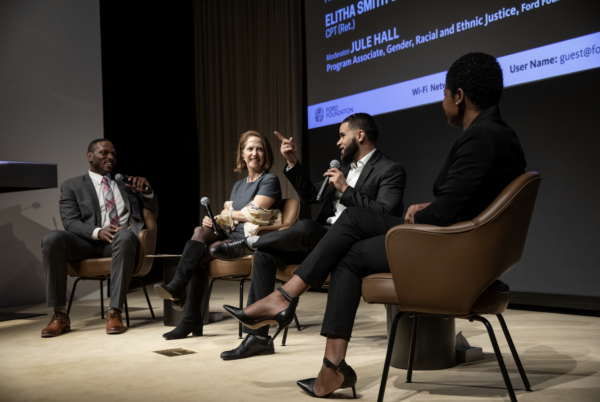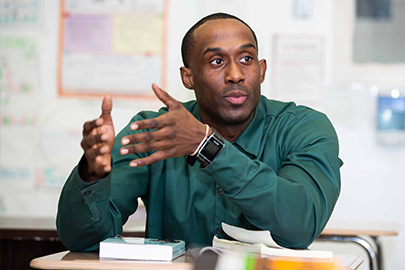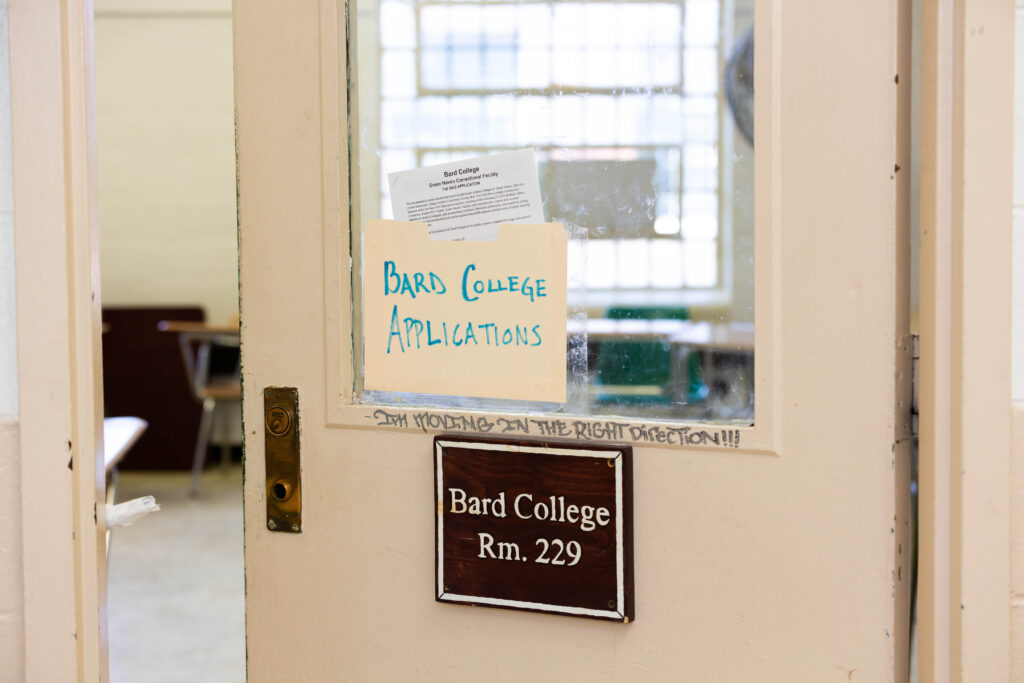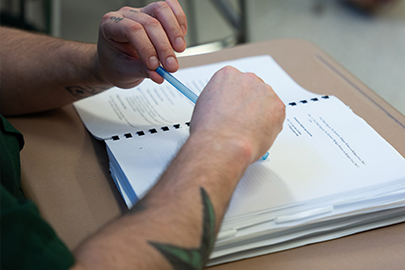When College Behind Bars premiered four years ago on PBS and later moved to Netflix, it served as an introduction for many people to learn about college-in-prison. Since the film’s airing, there have been many policy wins for the field of college education in prisons, including the restoration of Pell Grants for incarcerated students on the federal level and undoing state-level bans including restoring access to TAP grants in New York.
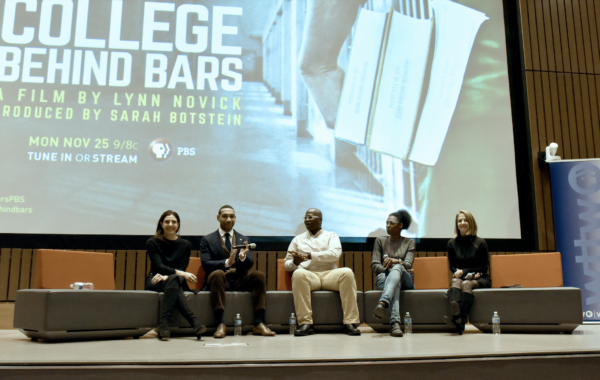
The docuseries was also a tool for colleges across the country to begin thinking about what it would look like to build their own college-in-prison programs, or to create the sense of community among practitioners and students in a field that can be isolating. And, the film has created opportunities of representation for incarcerated people – often from communities who have been denied access to high-quality education – to see themselves as students engaging in rigorous college.
College Behind Bars has been screened –often with BPI alumni panels–at more than fifty colleges and universities across the United States. It has been shown at more than a dozen jails and prisons across the country. We took the four year anniversary and recent reairing of College Behind Bars on PBS as an opportunity to ask members of the Consortium what screening College Behind Bars has meant for their communities. Below are their responses:
“This work can be extremely lonely, especially if you run a small program, as I was for many years [and] are the only person on staff. In a very fundamental way, being part of the Consortium from the beginning of this program and having the resources and the personnel being able to call anyone up when I had issues being able to complain or vent sometimes, as the case may be, has been really important to feeling like we’re working in a community of practice you know in a very real way.
When the documentary aired in prisons in Connecticut and our students watched it on their TVs and they knew ‘we’re part of this Consortium’ – it was, for me as well, an emotional moment. To feel like in the same way that you do when you’re a student and a faculty tells you about their teachers and you feel that you’re in this lineage of scholarship. We’re part of this movement.” – Zelda Roland, Director of Yale Prison Education Initiative
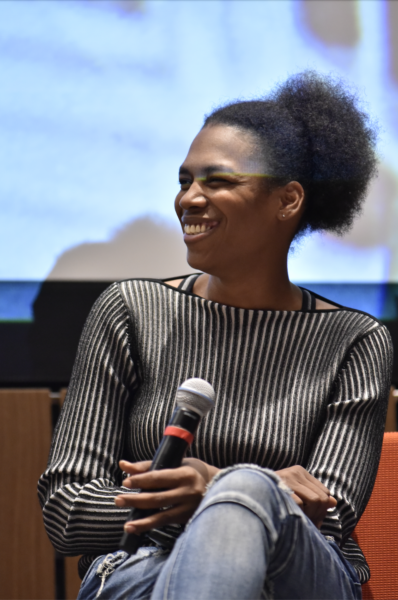
“Sharing College Behind Bars with the Emerson College community has been insightful on multiple levels. When screened at MCI Concord, Emerson Prison Initiative students were able to see pieces of their own stories on the screen and saw that they are part of a national college-in-prison community. That solidarity matters–people feel less alone and part of something worthwhile together, not only within their own prison but across prisons and state lines. For the non-incarcerated Emerson College community, screening College Behind Bars showcased how hard students work to be students–educational access is not to be taken lightly, but rather serves as a guiding star to organize one’s life. The film also helped administrators, staff, and faculty see how much institutional support matters in people’s ability to envision different lives for themselves. The film shows just how transformative access to higher education can be, and why it is a right worth working for.” – Mneesha Gellman, Director of Emerson Prison Initiative
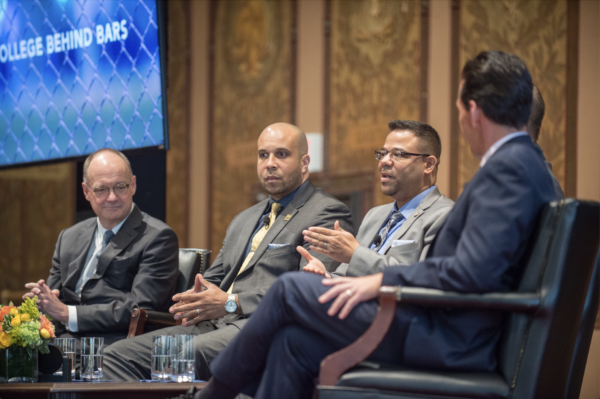
“College Behind Bars has been instrumental to Augustana College’s preparation for building our own college in prison program. We recommend it constantly. Students, faculty, and staff routinely report that the film first allowed them to understand that incarcerated students are human beings, flawed like the rest of us, with hearts, minds and spirits like the rest of us, too, full of capability. This film is the best way to crush the stigma about who we incarcerate in America and about what our incarcerated students are capable of if we would just allow it.
As the nation begins to wake up from the mass incarceration nightmare of the last three decades, this film can show Americans what is possible. Our incarcerated citizens have so much to offer this country. It is past time we raise our expectations.” – Sharon Varallo, Director of Augustana Prison Education Program
